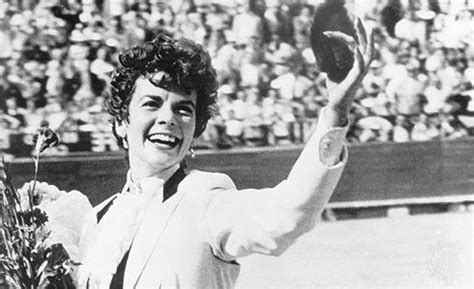A Quote by Andrew Motion
The best public poems aren't necessarily those that go at the subject like a bull at a gate.
Related Quotes
Before one goes through the gate one may not be aware there is a gate One may think there is a gate to go through and look a long time for it without finding it One may find it and it may not open If it opens one may be through it As one goes through it one sees that the gate one went through was the self that went through it no one went through a gate there was no gate to go through no one ever found a gate no one ever realized there was never a gate
In fighting a bull you're always aware of a paradox concerning your perceptions of the bull. On the one hand it's your perceptions of the bull that give you the upper hand. You read the bull, you learn to read the bull more and more accurately, and this reading of the bull is how you deploy your intelligence against the bull's intelligence. Your accuracy in reading the bull is a weapon, maybe your most important weapon, against all the bull's weapons. On the other hand, you're human, you have the human tendency to read into the bull things which may not actually be there.
There is nothing “still” in the remarkably visceral poems of Alexander Long's third collection, Still Life, and nothing is at rest in these restless and edgy poems. Conversational and kinetic, these poems chart the traces left by the shifting overlays of the templates of literature, rock-and-roll, and contemporary culture. As each poem in Still Life attempts to fix a focus upon a scene or subject, the protean natures under view draw the poet into the eddies and complexities of reflection. This is a powerful and moving collection of poems.
Is it a coincidence that stories from the private life became more popular just as the grand hope for public redemption through revolution was beginning to sour? I witnessed a similar shift in taste in my own time. In the 1960s, while a hopeful vision of a just society arose again, countless poems and plays concerning politics and public life were written, read, and performed. But after the hope diminished and public life seemed less and less trustworthy, this subject was less in style.
I think that the casual reader and the lyric and confession are trickily tied up together. I mean often when I read my students' poems my first impulse is to say, "O, the subject of this pronoun, this 'I,' is whatever kid wrote this poem." The audience for lyric poems is "confessionalized" to some extent. And I think this audience tends to find long narrative poems, for instance, kind of bewildering.







































